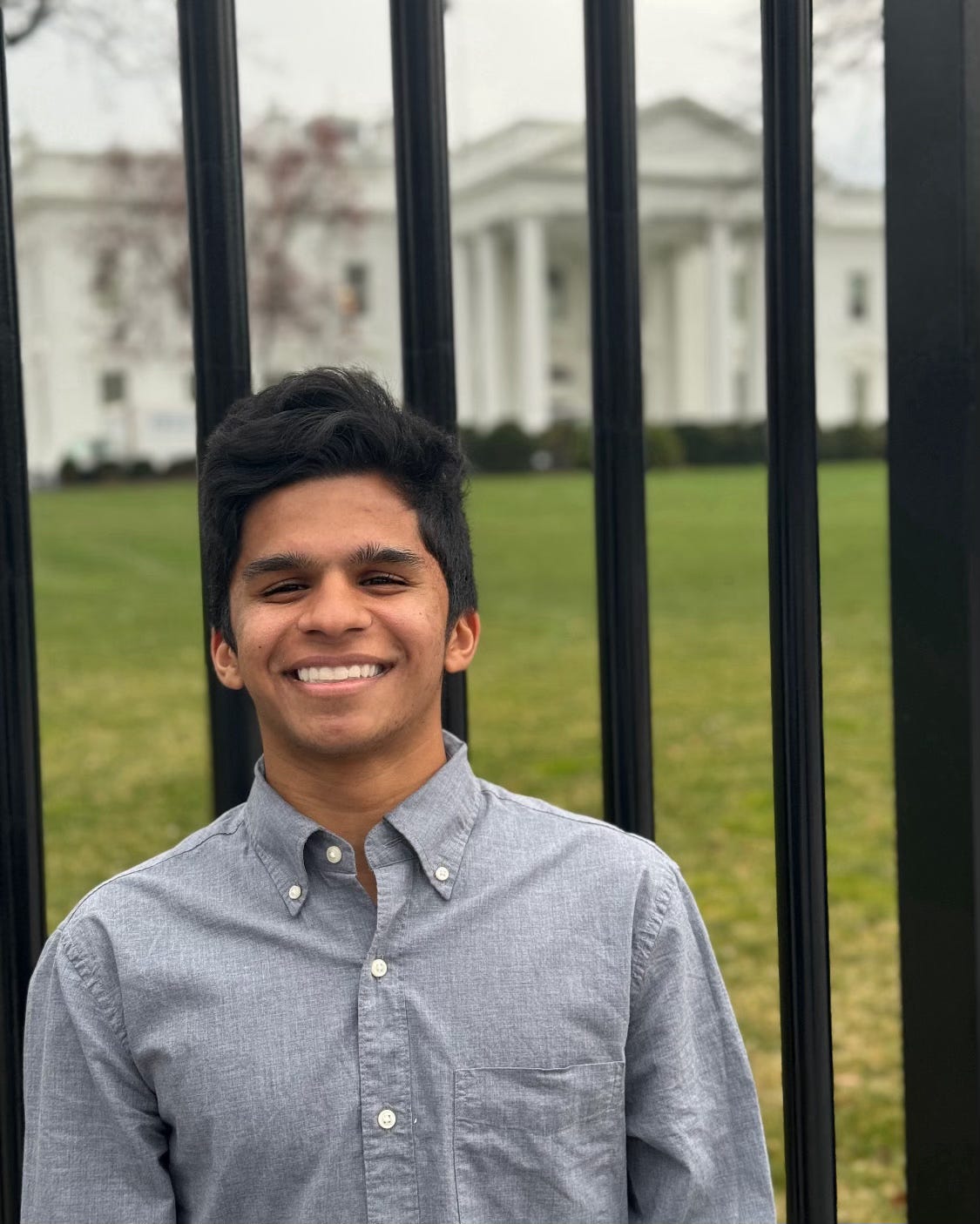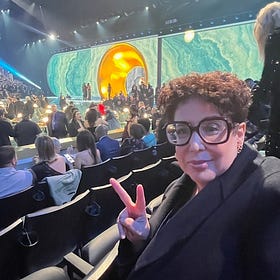”Honestly, people are very willing to help people who still want to be in journalism.”
The TPF Q&A with intern extraordinaire Krish Gupta
Krish Gupta is a junior at Haverford and holds the illustrious distinction of being Three Point Four Media’s first intern. In an effort to understand further understand the youth and the future of journalism, we called him up and bothered him during his semester abroad in Barcelona to talk about surviving Stuyvesant, reading the print New York Times, and whether anyone will ever get another job in media.
Three Point Four Media: What do you want to be when you grow up?
Krish Gupta: I think that’s the million dollar question, because I do think I could see myself being happy doing a bunch of different things.
In addition to thinking about sports journalism, I also have added working at a sports team or a league to the mix. Journalism is still on the table and I’ve done a number of things in journalism, but this past summer I got to work for the New York Red Bulls. That really increased my interest in working on the team side of sports.
This summer, I’m applying to all sorts of things adjacent to sports— teams and leagues, the usual sports journalism suspects, and even exploring some sports law opportunities.
What made you more interested in the sport side?
It all started with sports journalism. I've always been a massive sports fan, so the Red Bulls internship changed my thinking a little bit. I loved learning about the inside of a team: how the front office works, how big the teams are beyond the athletes, all of the decision-making that needs to go into running a successful franchise. That was all stuff that I hadn’t thought about before, and it seems like it would be very fun.
Do you ever play Football Manager?
Exactly. I love Football Manager. I’ve been doing a long term save trying to take Bath City FC from the Vanarama National League (the bottom tier of English football) to win the Champions League. I applied to a player relations role in MLS that seems like that, but real life, and am always on the lookout for more front office opportunities.
One of my favorite things at Stuyvesant was The Spectator, the newspaper. It's a lot bigger and better than my college newspaper.
What are your thoughts on the journalism landscape? Do you feel like you could find a job there?
It's definitely difficult. I’ve been looking at internships at big companies like The New York Times and ESPN. It’s really very, very competitive and difficult to get interviews. But on the flip side, I've also noticed that people in the journalism industry, and sports journalism specifically, are very receptive to giving advice and helping out. Haverford is a small school and has a small alumni network but they are all very interested in helping people.
I don't want to discourage you, but I don't know what I would do if I was coming out of college now and wanted to get into the media world. It's so completely different. There are some positives: Things like Substack didn't exist, and the idea of journalists as influencers didn't really exist. There are new pathways, but the traditional ones have fallen apart.
Have you heard of Puck? One of their founders went to Haverford. I've been talking to him a bit. They don't have internships, unfortunately, but he’s been very supportive and someone I’m keeping in touch with. Honestly, people are very willing to help people who still want to be in journalism.
What was Stuyvesant like? Everything I've ever heard about it makes it sound like the most intense place in the entire world. What was your experience?
It was definitely intense, especially looking at it in hindsight. A lot of tests. Definitely a bit of a pressure cooker environment. One of my favorite things there was The Spectator, the newspaper. It's a lot bigger and better than my college newspaper. There were 10 departments, three editors per department, probably 100 people working for it. That’s how I got into journalism.
Going to liberal arts school after Stuyvesant is very different. There are very different ways of learning. There are a lot fewer tests. It’s more projects and larger-scale things. Stuy was very fast paced. Some of that is high school: you have eight classes. You get a lot of homework, and that’s all you get to do pretty much. In a way, I’m happy to have experienced both— different styles of learning at different points in my life that have made me more adaptable.
But Stuy wasn’t as bad as it's necessarily perceived from the outside. Yes, it was a lot of work, but there are still sports teams. I had time to play club soccer and high school. I played on the ping pong team (a perfect icebreaker fun fact).
Where do you get your news? What is your media consumption?
The New York Times, primarily. My family still gets the physical paper so I read that when I’m home. At college, I go to the website or get notifications on my phone. I’ll check social media. I don’t use it much for news but when something’s happening, I’ll check Twitter. I have the CNN app on my phone. Not really TV.
Is that what most of your friends do as well?
I bet nobody else gets the physical New York Times but otherwise, yes. There are also reels. They are usually garbage but sometimes they're interesting. For the most part, it’s on our phones. I also listen to podcasts. The Daily for news. Sometimes I’ll fall asleep to it. A Giants podcast for the football team.
As a poli-sci major, I think I read more full articles than the average college student.
At Haverford, some professors really encourage AI.
How do you communicate with your friends? Has being abroad changed how you communicate?
It's a little different. I’m using WhatsApp here a lot.
Europeans love WhatsApp.
It's better for data, I guess? More FaceTiming abroad, too. FaceTiming with my friends in different cities. Probably half of our class is abroad. And the ones who aren't are coming to visit for their spring break as well.
Do you use AI at all?
I do sometimes. How I do varies class to class. This is more speaking for Haverford because classes here in Barcelona are… different.
You can say they are a joke.
I didn’t want to say it.
At Haverford, some professors really encourage it. They want you to use it to help your writing and things like that. Others say not to use it at all. I’ve been using it here for recipes. We're using it to do our spring break travel itinerary. It makes planning something like that so much easier.
Which ones do you like?
Just ChatGPT.
Do you pay for it?
No. I don’t. A lot of my friends do. Well, some of them do.
Have you used it to help you translate at all?
I've been able to get by without using Translate. I speak some Spanish, and I'm not speaking quite as much Spanish here as I hoped because I’m surrounded by study abroad kids most of the time. But at restaurants and places like that (and playing pickup soccer with locals), my Spanish is good enough.
Okay, back to the beginning: You’re a junior now. In a year and a half, what is the ideal first job for you?
Working at a league like MLS or a team would be awesome, but those jobs are definitely hard to come by right after college.
There are still a lot of things on the table that I should probably narrow down—whether that be grad school for data journalism (data science is my minor) or sports management, or even law school.
Short answer: still figuring that one out.
“Follow your heart before you follow the money” — advice from indie rock’s #1 publicist
Judy Miller Silverman is an indie music industry legend. I first met her as an assistant at Vanity Fair, when I couldn’t get any publicists to return my emails unless my boss was CC’d. But Judy always replied and treated me like a Real Writer when no one else would






